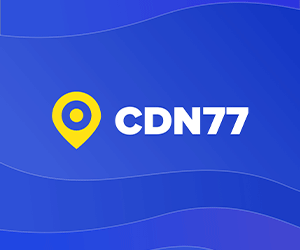The verdict is still out on whether social media is damaging to the mental health of teens. This is in part due to the lack of research. Some studies show that online connections with small groups of people can be beneficial to teens, while other research points to a rise in symptoms of anxiety, depression, and eating disorders.
The other reason it’s difficult to get a good read on the issue is that social media is constantly changing and evolving. Plus, no long-term studies have been completed. So, we’re left making educated guesses based on current research. There’s just not enough data to back up the potential long-term pros and cons of living on “likes”.
Small Studies, Worrisome Results
One study out of the University of Pittsburgh, for example, found a correlation between time spent scrolling through social media apps and negative body image feedback. Those who had spent more time on social media had 2.2 times the risk of reporting eating and body image concerns, compared to their peers who spent less time on social media. The participants who spent the most time on social media had 2.6 times the risk.1
Results from a separate study from the University of Pittsburgh School of Medicine showed that the more time young adults spent on social media, the more likely they were to have problems sleeping and report symptoms of depression.2
And another small study of teens ages 13-18 from the UCLA Brain Mapping Center found that receiving a high number of likes on photos showed increased activity in the reward center of the brain. Further, teens are influenced to like photos, regardless of content, based on high numbers of likes.3 Bottom line: It feels good to be “liked” and herd mentality is big on social media. Like what others like and you’re in.
DON’T MISS : Use Parental Control Apps Keep Calm Teen Years Parenting
The Upside of Social Media for Teens
There are some positive aspects to social media. It’s important to remember that teens are hardwired for socialization, and social media makes socializing easy and immediate. Teens who struggle with social skills, social anxiety, or who don’t have easy access to face-to-face socializing with other teens might benefit from connecting with other teens through social media.
Teens in marginalized groups—including LGBTQ teens and teens struggling with mental health issues—can find support and friendship through use of social media. When teens connect with small groups of supportive teens via social media, those connections can be the difference between living in isolation and finding support.
The Downside Social Media Use by Teens
Read enough of the current research and you’ll find that the negatives tend to feel bigger than the positives. While teens can use social media to connect and create friendships with others, they also confront cyberbullying, trolls, toxic comparisons, sleep deprivation, and less frequent face-to-face interactions, to name a few.
Too much time spent scrolling through social media can result in symptoms of anxiety and/or depression. Here’s how social media can be destructive:
- Focusing on likes: The need to gain “likes” on social media can cause teens to make choices they would otherwise not make, including altering their appearance, engaging in negative behaviors, and accepting risky social media challenges.
- Cyberbullying: Teens girls in particular are at risk of cyberbullying through use of social media, but teen boys are not immune. Cyberbullying is associated with depression, anxiety, and an elevated risk of suicidal thoughts.
- Making comparisons: Though many teens know that their peers share only their highlight reels on social media, it’s very difficult to avoid making comparisons. Everything from physical appearance to life circumstances to perceived successes and failures are under a microscope on social media.
- Having too many fake friends: Even with privacy settings in place, teens can collect thousands of friends through friends of friends on social media. The more people on the friend list, the more people have access to screenshot photos, Snaps, and updates and use them for other purposes. There is no privacy on social media.
- Less face time: Social interaction skills require daily practice, even for teens. It’s difficult to build empathy and compassion (our best weapons in the war on bullying) when teens spend more time “engaging” online than they do in person. Human connection is a powerful tool and builds skills that last a lifetime.
There’s a happy medium in here somewhere. The key to helping teens learn to balance social media with real life friendships is to keep the lines of communication open and keep talking. Honest communication shows your teen that you are there to support, not to judge or lecture. It’s also important to walk the walk. Disconnect on weekends and show your teen that there is a whole world out there that doesn’t require a handheld screen. She may miss her phone a lot less than she thinks she will and this is a very good lesson to learn.
- Sidani, J., et al, “The Association between Social Media Use and Eating Concerns among US Young Adults,” Journal of the Academy of Nutrition and Dietetics, September (2016), Volume 116, Issue 9: Pages 1465–1472.
- Levenson, JC, et al, “Social Media Use Before Bed and Sleep Disturbance Among Young Adults in the United States: A Nationally Representative Study,” Sleep, 2017 Sep 1;40(9).
- Sherman, Lauren, et al, “The Power of the Like in Adolescence: Effects of Peer Influence on Neural and Behavioral Responses to Social Media,” Psychological Science, May (2016), Vol 27, Issue 7.
Bijay Pokharel
Related posts
Recent Posts
Advertisement
Subscribe

Cybersecurity Newsletter
You have Successfully Subscribed!
Sign up for cybersecurity newsletter and get latest news updates delivered straight to your inbox. You are also consenting to our Privacy Policy and Terms of Use.









